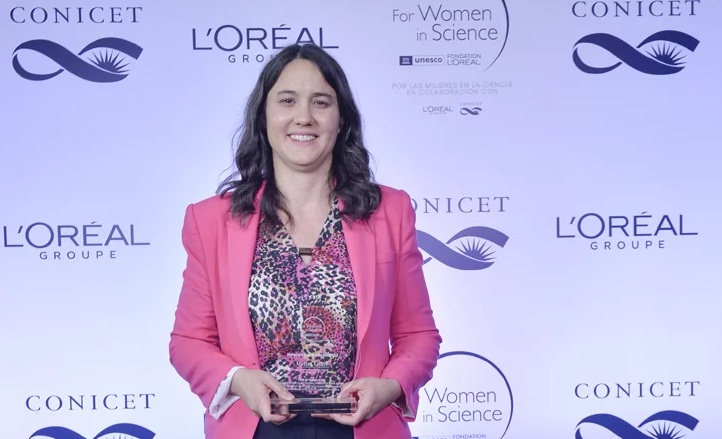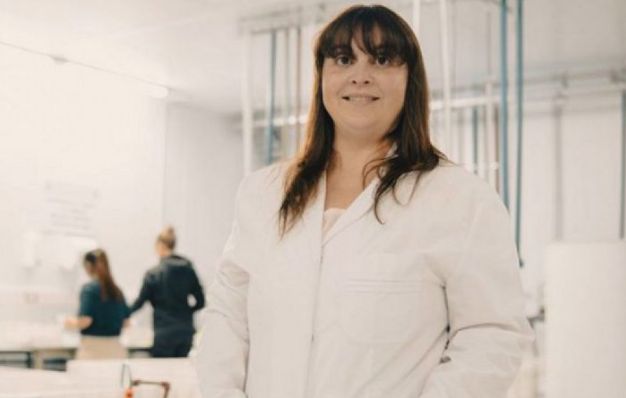Ana María Laxalt is an Argentine researcher with a degree in biological sciences. She holds a PhD in the field, and her specialty is cellular biology.
The Argentine doctor is a scientific researcher and professor. Her main research focus is on plants and how to improve them under different stress conditions.
Laxalt and biological sciences
Laxalt is trained in the field of biological sciences, which can be described as sciences that encompass life and all associated topics, especially those related to the biological characteristics of living beings.
Within the field of biological sciences, the Argentine researcher focuses her work on cellular and molecular biology.
Regarding cellular biology, which focuses on the cells of living beings, Laxalt studies phospholipids—a type of lipid found in cell membranes as part of their structure. One of their most important functions is to protect the cell.
Laxalt and her scientific career
Laxalt is part of several scientific institutions. On one hand, she is a member of the National Scientific and Technical Research Council (CONICET) and of the CONICET Scientific and Technological Center in Mar del Plata (CCT Mar del Plata), which is part of CONICET.
These institutions are dedicated to the development of scientific and technological research in Argentina, with the second one specifically located in Mar del Plata.
On the other hand, Laxalt is deputy director of the Institute for Biological Research (IIB), which also belongs to CONICET. The institute promotes several sciences, such as biochemistry, cellular biology, and molecular biology.
The institute also aims to share scientific knowledge with the public and foster the development of biological sciences in the country.
The research carried out by the Argentine scientist has earned her recognition through the National L’Oréal-UNESCO Award “For Women in Science”.
This award is a collaboration between L’Oréal Argentina and CONICET, and it seeks to honor and promote the participation of women in the scientific field.
The award celebrates various research projects in different scientific areas. Laxalt’s awarded project is titled:
“Phospholipase C in Stress: Controlling Tomato Diseases through Gene Editing and the Use of Arabidopsis as an Experimental Model.”
This study analyzes how tomatoes interact with various viruses, fungi, and bacteria, as well as their defense responses.
The objective of the project is to obtain a tomato plant with a higher resistance level against different pathogens.
Cellular biology
In addition to her research, Laxalt is co-author of several scientific articles. These works cover topics such as plant and cellular physiology, tomato cells, among others.
She has also participated in various scientific conferences related to fields like plant physiology, stress, and plant development.
Cellular biology is a discipline known for studying cells and their interactions, their relationships with pathogens, and their immunity, among other topics.
Studying the cells of living organisms is essential for understanding the organism as a whole. Moreover, this research allows connections between cells and other areas, such as medicine and health.
Depending on the topic and goals, studying cells contributes to many different sciences. The development of more efficient drugs or improved plants to face stress situations are some of the outcomes that cellular biology research makes possible.
In addition to medicine, plant-related studies can be connected with fields such as cosmetics and various sectors of the economy.
Cellular biology and plant research allow for better environmental protection measures and improved agricultural productivity.
In Argentina, Laxalt is one of the researchers dedicating her scientific career to the advancement of this discipline and its connection with plants.
Through her research, the doctor in biological sciences promotes the development of these sciences and demonstrates how they contribute to a better quality of life.
Moreover, Laxalt’s work helps to improve not only human life but also plant characteristics, increasing their resistance to various stress conditions.
Through her investigations, the Argentine researcher shows how biological sciences—especially cellular biology—and related studies are important to human life.




